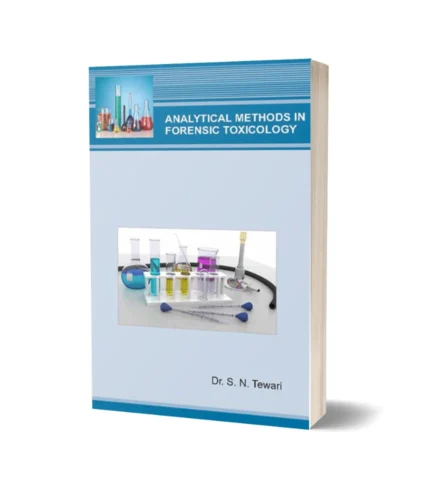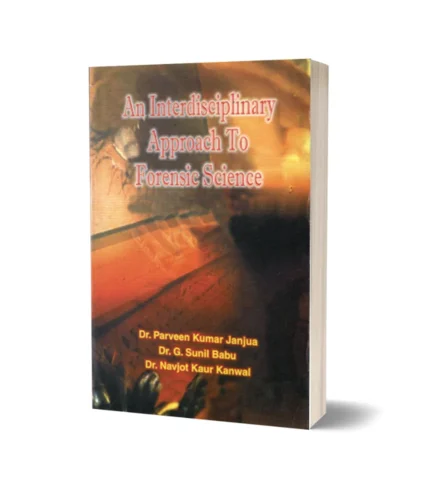Description
Anthropology and Forensic Science are unveiling to teach and learn as it is the realistic application of all areas of science to human and its identification. It has been observed that many subfields of Anthropology are contributing to human development both in India and at the global level. Anthropologists are highly specialized in research interests, yet remain generalised in observations of the human condition and advocate for the trajectory of development and commitment to bring knowledge to broad audience. Much has happened in Anthropology and Forensic Science for the last few years since the teaching in Forensic Science and Anthropology started in the Universities and Colleges. The media are paying increasing attention to the accomplishments and problems in the fields.
Forensic Science started gaining ground in the early fifties as an independent discipline and since then it has derived applications from every field of Science and Technology. Today it is well established and much sought after with ever-growing technology. Forensics and forensic investigations are fast changing their face like every other day new types of crimes are being reported. To cope up with the demanding nature of this profession, Forensic Science needs up-gradation at every stage. Nowadays forensic intelligence collection and dissemination techniques are major tools in countering any sort of crime. Forensic data is a key feature of intelligence and meaningful evaluation.
Preventive forensics and forensic intelligence collection tools are playing a major role in redefining present-day safety and security standards in civil aviation, internet surveillance, critical infrastructure protection, etc. Forensic accounting techniques use scientific detection, interpretation and communication of evidence through a thorough investigation of books and records of an accounting system. Nowadays crime pattern is fast changing due to the easy availability of hi-tech tools. The new wave of hi-tech crime pattern is now a challenge to forensics. All police and medical training institutions are now going for all hi-tech forensic oriented topics. The present demand for forensic education is a good sign for trained manpower in forensic laboratories and in police organizations. It has now been observed that the crime base is shifting from urban to rural and tribal areas in India. It is time to strengthen the rural/tribal forensic base. Rural and tribal folks are prey to various types of crimes as they are unaware of the forensic applications to combat hi-tech crimes. All rural investment and developmental schemes need to be brought under the purview of Forensic Management process so that developmental activities can be brought from papers to actual reality. The idea of introducing forensic management process is to bring a paradigm shift from wastage of resources to the proper utilization of fund for the disadvantaged section of rural India and bring value to such tribal/rural developmental activities.
Anthropological knowledge has been used widely in planning projects and policy-making for National Development, public health issues, mother-child health etc., as well as for designing work efficient equipment/machines to enhance the efficiency of work and safety at the workplace. The interface of Anthropology and Forensic Science is important for economic and social development leading to National Development providing a safe and secure environment to the persons from the farthest fringe of society.
The editors have categorized the manuscripts into two broad sections i.e. (I) Anthropology; and (II) Forensic Science. These sections are distinct at the same time connected to the broader understanding of anthropology in action. There are twenty-nine chapters arranged as per the theme contributed by scholars and distinguished faculty. The content of the Volume, on the whole, admits the challenges of globalization, urbanizations, changing crime trends and forensic investigation techniques advances with time.
Following a multidisciplinary approach, this comprehensive volume provides a broad understanding of Anthropology in action and Forensic Science application today. In the anthropological sections, authors explore various public health issues with a special focus on childhood and adolescent obesity, socio-economic status and its association with diabetes and anaemia, the influence of cultural and behavioural factors on obesity, and understandings of the water crisis in Delhi, Urban Spaces and lifestyle-related health risks, ethnicity, identity and social development. This section also highlights the Megalithic Tradition among the Karbis of Assam, Inter-generational relation and transition in fast-changing society, adverse child sex ratio and related consequences, anthropometric somatotypes among the tribes of India, the relevance of startups in forest minor products, lifestyle patterns of adults in an urban dwelling etc. The section II covering Forensic science share the papers highlighting sex determination from the hand dimensions, fingerprint ridge, Individualization by PGM technique for detection of gang rape, the variability of digital flexion creases, age estimation from pulp tooth area ratio, the importance of handwriting and occupational marks in criminal investigations and related factors, various techniques of collection and preservation of biological evidence obtained from different surfaces of crime, and dispersion pattern of gunshot residue of country-made firearms of different Caliber by using SEM/ EDX.
The present is volume is an outcome of the National Seminar titled, “Role of Anthropology and Forensic Science in National Development” held during 24th -25th March 2017. Our special thanks to the Head of the Department, Department of Anthropology, the University of Delhi for all needed help and encouragement to bring out this Volume. The organizing team of the National Seminar deserves special gratitude for extending their help and support. We express our thanks to all the contributors for their outstanding efforts. We are grateful to our chief guests and guest of honour Prof. T.R. Sheshadri, Dean Research, Physical Science, University of Delhi, Dr Anju Gupta, Director, NCWEB, University of Delhi, Dr Madhulika Sharma, Director, Forensic Science Laboratory (FSL) and Mr D.K. Handa, PSO, CFSL, CBI for their gracious presence and illuminating words. The Department of Anthropology is honoured to felicitate Prof. S.C. Tiwari and Prof. Raghbir Singh with the first-ever institutional, ‘Lifetime Achievement Award for their exemplary contribution in the field of Anthropology. The contribution given by the Chairpersons, Co-chairpersons and Rapporteurs of different sessions is greatly acknowledged. The staff of the Department of Anthropology is acknowledged for their tireless help and assistance. Our sincere thanks to Ms Nilupher and Ms Kshetrimayum Surmala Devi for their relentless assistance in the preparation of this volume. Our special thanks to the Dean Research, University of Delhi, University of Delhi and Department of Anthropology,
The University of Delhi for providing financial assistance for the Seminar. Editing this volume was an enjoyable and interesting experience for us and we hope that all the readers will find it illuminating and enriching their knowledge further in the field of Anthropology and Forensic Science.
This compilation would be an informative and encompassing reading for students, teachers, researchers, policy-makers and others who are concerned with the anthropology, forensic science and related fields as it encompasses an integrated approach of coalescing anthropology and forensic science and is expected to have its own unique identity. It is an innovative, all-inclusive and positive approach to relevant anthropological and forensic science issues that have been gaining attention across the globe. This would be a reference Volume for the students of Anthropology, Forensic Science, Development Studies/Policy Studies in Central and State Universities, Research Institutes of India as well as in other countries. This edition is expected to target a large audience from the academic, educational, and professional field at both national and international front be it scholars, practitioners in health sectors, researchers, counsellors, policymakers, members of civil society and those who are interested in the area of Anthropology and Forensic Science in action













Reviews
There are no reviews yet.